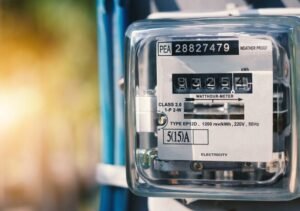
Solar energy is becoming increasingly popular in Kenya as more people and businesses realize the benefits of using clean, renewable energy. One exciting development that could make solar energy even more attractive is net metering. But what exactly is net metering, and how will it impact solar users in Kenya? Let’s break it down in simple terms.
Net metering is a system that allows people who generate their own electricity using solar panels to sell excess electricity back to the grid. This means that if you have solar panels on your roof and produce more electricity than you need, the extra energy can be sent back to the national grid, and you’ll get credit for it. The idea is that you only pay for the “net” amount of electricity you use—what you consumed from the grid minus what you sent back.
Think of it like this: during the day, when the sun is shining, your solar panels might generate more energy than your household or business needs. Instead of letting that energy go to waste, net metering allows you to send it to the grid, and the energy company compensates you. Later, when your panels aren’t producing electricity (like at night), you can pull energy from the grid without paying as much because of the credits you’ve earned during the day.
The Kenyan government and the Energy and Petroleum Regulatory Authority (EPRA) are working on implementing net metering to encourage more people to invest in solar energy. The system is designed to help both individuals and businesses save on electricity costs while contributing to a cleaner environment by using renewable energy sources.
Here’s a simple outline of how it would work:
While the benefits of net metering are clear, there are also a few challenges:
Net metering is an exciting development that can greatly benefit solar users in Kenya. It offers the opportunity to lower electricity bills, speed up the return on investment for solar systems, and contribute to a cleaner, more sustainable energy future. While there are some challenges to consider, the potential impact of net metering is largely positive, making solar energy more accessible and rewarding for Kenyans.
As net metering becomes a reality in Kenya, it could lead to a brighter, greener future where solar power plays an even bigger role in our energy system. If you’re considering installing solar panels, now might be the perfect time to do so—especially with the added advantage of net metering!

Sameer Business Park, Block E1 1st Floor. Mombasa Road. Nairobi Kenya
sales@plasmasolarafrica.com
+254 799 891 759
Pioneering the next generation of solar energy solutions to power a sustainable future.
Copyright © 2022 All Rights Reserved